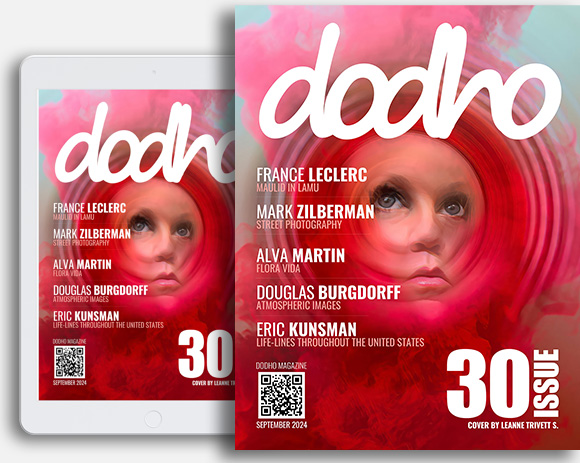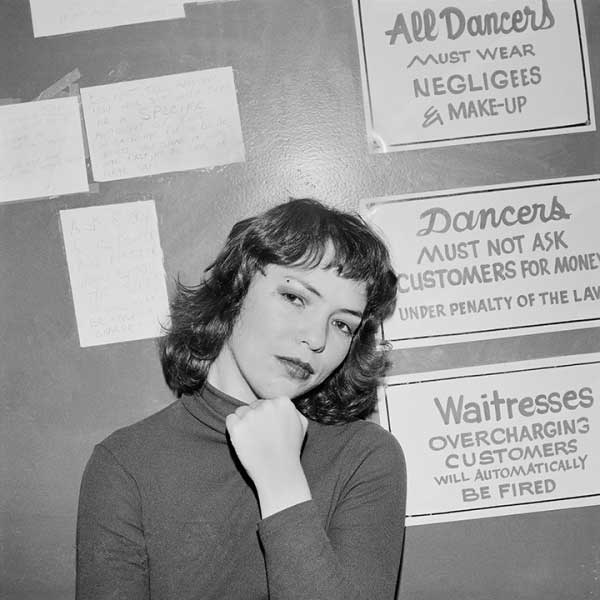Steven Kasher Gallery is proud to present Meryl Meisler, a solo exhibition of the artist’s earliest work. The exhibition includes over 35 black and white prints. The photographs capture the drama and exuberance of the 1970s, when pop-psychology encouraged everyone from suburban Long Island housewives to drag queens and disco queens to self- actualize and act out. The photographs drift between the kitsch-filled rooms of Meisler’s hometown in Long Island to the gritty clubs and streets of disco-era New York.
Meisler takes her stylistic cues from the snapshot aesthetic that was at the center of New York’s photo world debates since the New Documents show organized by John Szarkowski at MoMA in 1967. Meisler was inspired by Jacques Henri Lartique’s decades-long photo diary, Diane Arbus’ retrospective at MoMA in 1972 and Brassai’s effervescent Paris by Night photographs from the 1930s. These influences helped define her approach, which focused on personal diary, the snapshot aesthetic and night life. Her distinct, borough-spanning vision of New York in the 70s aligns her with the masters of Americana.
The earliest pictures in the exhibition, from 1973, are self-portraits, posed as a Girl Scout, a ballerina and other childhood identites. She then turned her lens on her friends, parents, relatives and neighbors, a quirky bunch. Meisler’s hometown of Massapequa was nicknamed “Matzoh Pizza” because of its many Jewish and Italian families. Outlandish décor ruled, inspired by everything from French Empire to Mid-Century Modern, and a cast of lively characters was ready to ham it up at the drop of a hat. “Homes are dramas”, Meisler says, and the people of “Matzoh Pizza” were in on the joke and eager for their moment in the spotlight.
Many of Meisler’s photos document members of the “The Mystery Club,” a group of eleven couples from nearby neighborhoods who would take turns planning “mystery” outings. These took them everywhere from haunted houses, recording studios and hypnotists to the Continental Baths in New York City and a nudist camp in South Jersey. Posing coyly in front of their matching wallpaper and bedspreads and surrounded by ornately arranged tchotchkes, her subjects capture the pride and delight of people for whom the suburbs meant affordable homes and the chance to escape the urban streets that had become increasingly mean.
Moving back to the city from Wisconsin in 1975, Meisler worked as a freelance illustrator. She frequented the infamous New York clubs and discos, following a close-knit and diverse community of artists, feminists, drag queens, musicians and writers. She photographed the punks at CBGBs, the revelers at Studio 54 and the dancers at Playmates, Winks and The Magic Carpet where she worked as a hostess. Meisler’s night life photos put her and the viewer in the middle of the no-holds barred hedonism of clubs like Hurrah, Les Mouches, Xenon and other cathartic hot spots.
Meryl Meisler was born 1951 in the South Bronx and raised in North Massapequa, Long Island, NY. In 1973, while on an illustration track at the University of Wisconsin, Madison, Meisler enrolled in a photography class. She bought her first camera and began photographing while at home on Christmas Break. In 1975, Meryl returned to New York City and studied with Lisette Model, continuing to photograph her hometown and the city around her. As a 1978 CETA Artist grant recipient, Meryl created a portfolio of photographs which explored her Jewish Identity for the American Jewish Congress. After CETA, Meryl began a 31 year career as a NYC Public School Art Teacher.
Meisler has received fellowships and grants from the New York Foundation for the Arts, The Puffin Foundation, Time Warner, Artists Space, CETA, the China Institute and the Japan Society. Her work has been exhibited at the Brooklyn Museum, Brooklyn Historical Society, Dia Art Foundation, MASS MoCA, the New Museum for Contemporary Art, The Whitney Museum of American Art and in public spaces including Grand Central Terminal, South Street Seaport and throughout the NYC subway system. Her work is in the permanent collections of the American Jewish Congress, AT&T, Bibliothèque Nationale de France, the Brooklyn Historical Society, Columbia University, Islip Art Museum, Library of Congress, and the Whitney Museum of American Art and in the Artist Book collections of Carnegie Mellon, the Chrysler Museum, Centre Georges Pompidou and the Museum of Modern Art.
Steven Kasher Gallery
515 W. 26th St., NY, NY 10001










